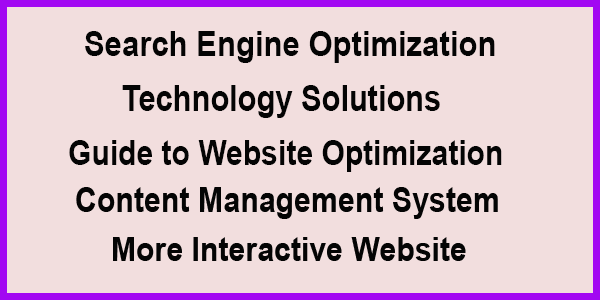Table of Contents
Introduction to Professional Website Development
Professional website development plays a crucial role in establishing an effective online presence. In today’s digital age, a website is often the first point of interaction between businesses and their potential customers. This article will provide an overview of professional website development, highlighting its importance and key elements that contribute to its success.
Technology Solutions for Website Development

With the advancement in technology, there are numerous solutions available for website development. This section delves into various technology solutions that can be utilized to create a professional website. It explores different programming languages, frameworks, and platforms that developers can leverage to build high-quality websites.
Web Development: The Key to a Professional Website
Web development serves as the backbone of a professional website. This heading explains the fundamental concepts of web development and the role it plays in creating a functional and visually appealing website. It covers topics such as HTML, CSS, JavaScript, and server-side scripting languages, providing an insight into the building blocks of web development.
The Importance of Web Design in a Professional Website
Web design is a critical aspect of a professional website as it shapes the overall look and feel of the site. This section emphasizes the significance of web design and highlights the key elements needed to create a visually pleasing and user-friendly website. It explores color schemes, typography, layout, and other design principles that contribute to an engaging user experience.
Optimizing Your Website: A Guide to Website Optimization


Website optimization is essential for ensuring that a professional website performs well and ranks higher in search engine results. This heading discusses the importance of website optimization and provides insights into various techniques and strategies that can be employed to improve site speed, user experience, and search engine visibility.
Choosing the Right Web Hosting for a Professional Website
Selecting the right web hosting provider is crucial for a professional website’s success. This section highlights the factors to consider when choosing web hosting services, such as reliability, security, scalability, and support. It also explains different types of web hosting options available, including shared hosting, VPS hosting, dedicated servers, and cloud hosting.
The Significance of Responsive Design for a Professional Website
In today’s mobile-driven world, responsive design has become imperative for professional websites. This heading explores the importance of responsive design in ensuring that a website adapts seamlessly across various devices and screen sizes. It discusses the key principles and techniques used to create mobile-friendly websites for enhanced user experience.
Managing Your Website’s Content with a Content Management System
A content management system (CMS) simplifies the process of managing and updating website content. This section explains how using a CMS can enhance the efficiency and flexibility of a professional website. It discusses popular CMS platforms, such as WordPress, Drupal, and Joomla, and provides guidance on choosing the right CMS for specific website requirements.
Creating a Mobile-Friendly Website for an Enhanced User Experience
With the increasing number of mobile users, optimizing a website for mobile devices has become vital. This section showcases the importance of creating a mobile-friendly website to provide an enhanced user experience. It covers responsive design principles, mobile optimization techniques, and best practices for designing effective mobile interfaces.
Understanding the Basics of Search Engine Optimization (SEO)
Search engine optimization (SEO) is essential for improving a website’s visibility in search engine rankings. This heading provides an overview of SEO and its primary components, such as keyword research, on-page optimization, link building, and technical SEO. It offers insights on how to optimize a professional website to attract organic traffic and increase online visibility.
Integrating Social Media for a More Interactive Website
Social media integration can significantly enhance the interactivity and engagement of a professional website. This section highlights the benefits of incorporating social media features and explores different strategies to leverage social media platforms effectively. It discusses the integration of social sharing buttons, embedding social feeds, and using social media for content promotion.
Exploring E-commerce Solutions for Your Professional Website
For businesses looking to sell products or services online, having e-commerce functionality on their website is essential. This heading explores different e-commerce solutions available for creating a professional online store. It discusses popular platforms like Shopify, WooCommerce, and Magento, and highlights key features and considerations for successful e-commerce implementation.
Online Marketing Strategies to Promote Your Website
Once a professional website is established, effective online marketing strategies are crucial to drive traffic and promote the site. This section delves into various digital marketing techniques, including search engine marketing (SEM), social media marketing, email marketing, and content marketing. It provides insights on how to develop a comprehensive online marketing plan to attract targeted visitors.
Gaining Insight with Web Analytics for your Website
Web analytics allows website owners to gather valuable insights into user behavior and website performance. This heading focuses on the importance of web analytics for a professional website and introduces popular analytics tools like Google Analytics. It explains how to set up tracking, interpret data, and make data-driven decisions to optimize website performance and achieve business goals.
Ensuring Website Security: Best Practices
Website security is paramount to protect against cyber threats and maintain user trust. This section emphasizes the importance of implementing robust security measures to safeguard a professional website. It covers best practices for securing websites, such as SSL certificates, regular updates, strong passwords, and secure hosting environments.
Maintaining Your Website: A Comprehensive Guide
A professional website requires regular maintenance to ensure optimal performance and functionality. This heading provides an overview of website maintenance tasks and their significance in preserving the website’s integrity. It covers areas like software updates, backup strategies, performance monitoring, and error handling, offering guidance on establishing an effective website maintenance routine.
The Importance of Website Speed for a Professional Website
Website speed is a critical factor that directly impacts user experience and search engine rankings. This section highlights the significance of optimizing website speed for a professional website. It discusses techniques like image optimization, caching, content delivery networks (CDNs), and code optimization, helping website owners enhance their site’s performance.
Exploring Cloud Hosting for a Professional Website
Cloud hosting offers numerous advantages for hosting a professional website, such as scalability, flexibility, and reliability. This heading explores the concept of cloud hosting and its benefits for businesses of all sizes. It explains how cloud hosting works, differentiates between public and private clouds, and provides insights into selecting the right cloud hosting provider.
Registering and Managing Your Website Domain
A domain name serves as the unique identity of a professional website. This section offers guidance on choosing an appropriate domain name and registering it. It covers domain registration best practices, domain name extensions, and tips for managing domain renewals and DNS settings effectively.
Customizing Your Website: Adding Personal Touch
Adding a personal touch to a professional website helps in branding and differentiating it from competitors. This heading delves into ways to customize a website’s design, layout, and content to align with the brand’s identity and objectives. It discusses customization options like themes, templates, widgets, and plugins, enabling website owners to create a unique online presence.
Scalability: Setting Up Your Website for Future Growth
Scalability is essential for accommodating an expanding user base and increasing website traffic. This section focuses on the importance of building a scalable architecture for a professional website. It covers topics such as load balancing, server clustering, database optimization, and caching strategies, enabling websites to handle growth seamlessly.
Ensuring Website Accessibility for All Users
Website accessibility ensures that all users, including those with disabilities, can access and navigate a professional website effectively. This heading emphasizes the significance of designing websites that comply with accessibility standards. It explains accessibility guidelines, techniques, and tools that can assist in creating an inclusive web experience for everyone.
Building a Strong Website Branding for a Professional Website
A strong branding strategy helps in establishing a professional website’s identity and creating a lasting impression. This section explores the importance of branding and highlights key elements of branding, such as logo design, color schemes, typography, and consistent messaging. It provides insights on how to create a cohesive branding strategy that resonates with the target audience.
Improving Website Performance: Tips and Techniques
Continuous improvement of website performance is crucial for maintaining user satisfaction and engagement. This heading offers tips and techniques for optimizing website performance. It covers areas like database optimization, code optimization, image compression, and minimizing HTTP requests, helping website owners enhance their site’s speed and efficiency.




